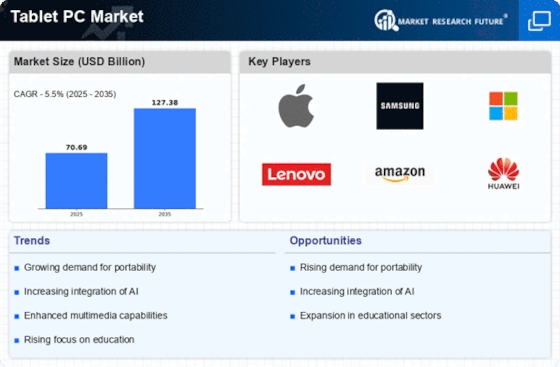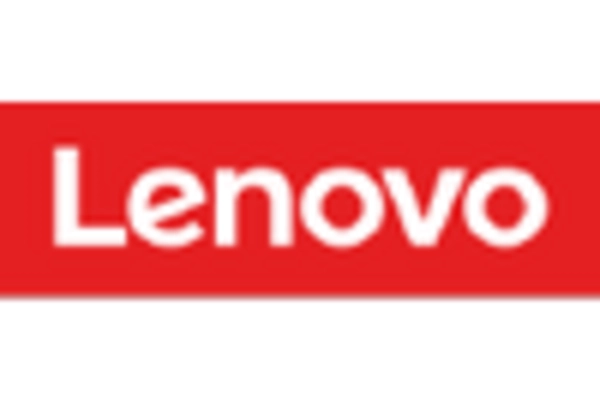Market Analysis
In-depth Analysis of Tablet PC Market Industry Landscape
Tablet PCs have gained widespread popularity among students and young professionals due to their practicality and agility. The electronics industry's precision and manufacturing capabilities have been instrumental in enhancing the quality and affordability of tablet PCs, fueling their increasing adoption. In the United States, the demand for tablet PCs is steadily growing, prompting electronics manufacturers to continuously innovate and improve the form and function of these devices. Tablet PCs have become an essential tool for various demographics and user groups, catering to a wide range of needs and preferences.
Governments across the globe are actively promoting the integration of tablet PCs into educational institutions. For instance, in July 2021, the Karnataka government in India distributed 1.6 lakh tablet PCs to students in various higher education institutions. Similarly, the Andhra Pradesh government in India aims to provide tablet computers to class 8 students and instructors, demonstrating the growing recognition of tablet PCs as valuable educational tools. Tablet PCs have also made significant inroads into the healthcare sector, offering a range of services that enhance patient care and improve staff productivity. These devices can provide department and medical staff introductions, hospital overviews, and department introductions, streamlining information access for patients and visitors.
Healthcare tablet PCs can also boost nursing staff productivity by enabling camera scanning for patient identification, providing patients with comprehensive medical information through videos, images, and presentations, and enhancing patient understanding of their medical conditions and preventive measures. Additionally, the remote visitation function facilitated by tablet PCs can alleviate anxiety among patients' families and reduce the risk of medical infection events. In the banking industry, tablet PCs are playing a crucial role in enhancing customer interactions and adapting to the digital banking landscape.
Banks are increasingly adopting tablet PCs to provide in-person assistance, enabling staff to access customer information, process transactions, and provide personalized financial advice. The retail sector is also witnessing the rapid adoption of tablet PCs. Retailers are leveraging tablet PCs to enhance the in-store shopping experience, allowing customers to access product information, check reviews, and place orders for home delivery. Sales associates can utilize tablet PCs to demonstrate products, compare features, and provide customer reviews, facilitating informed purchasing decisions.


















Leave a Comment